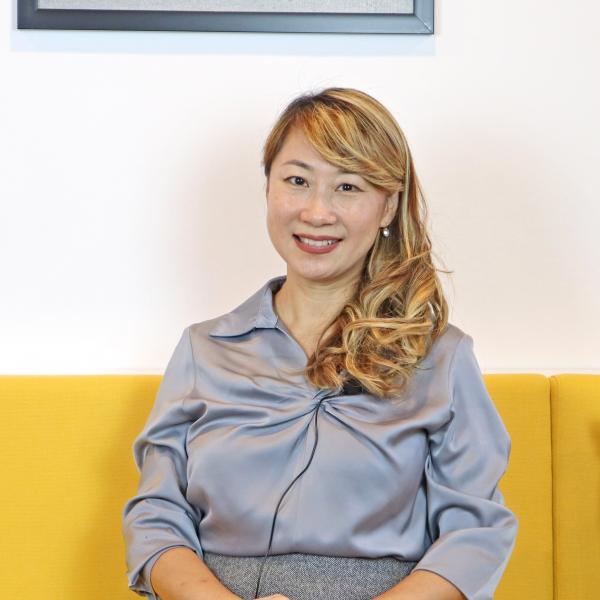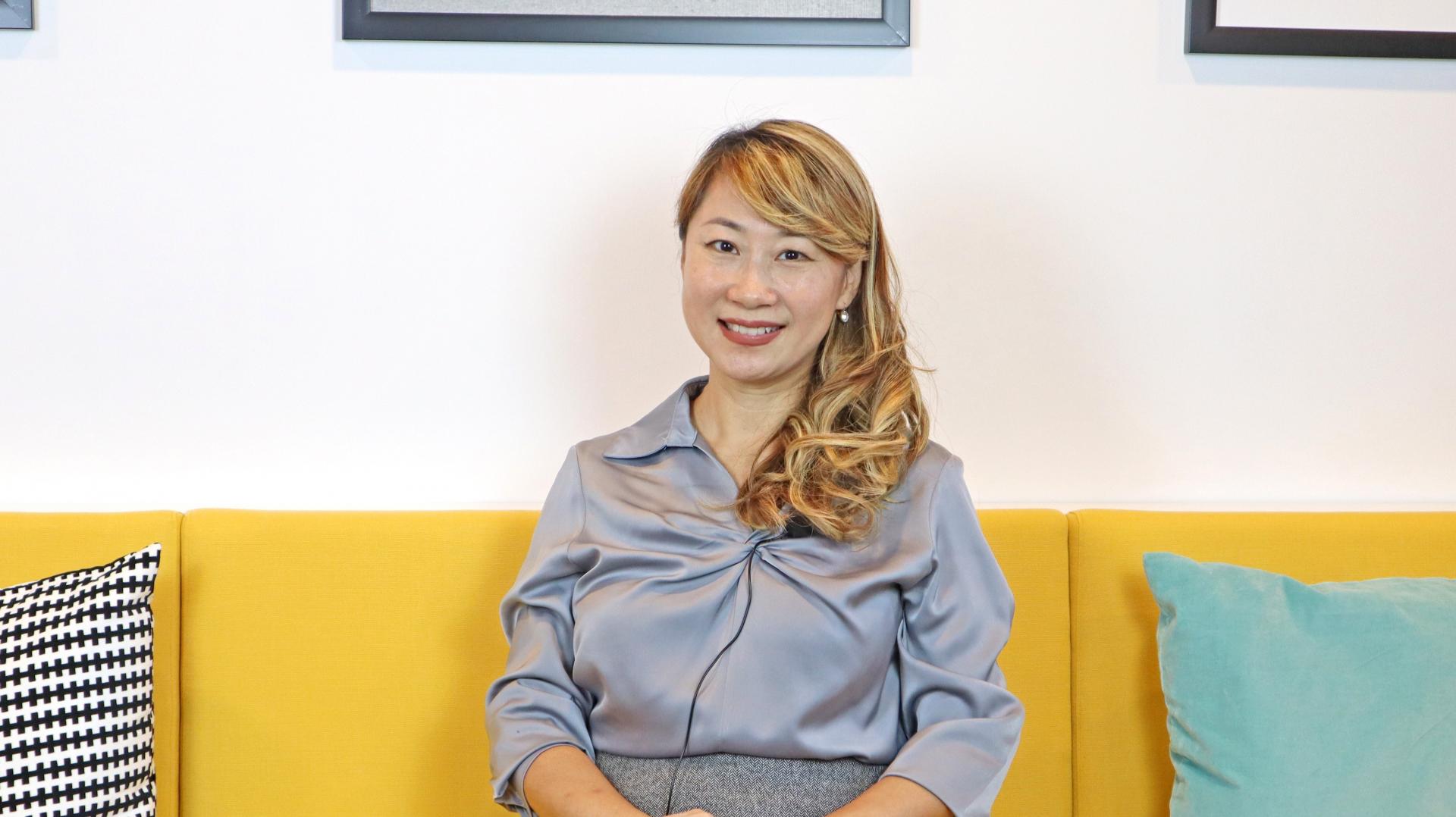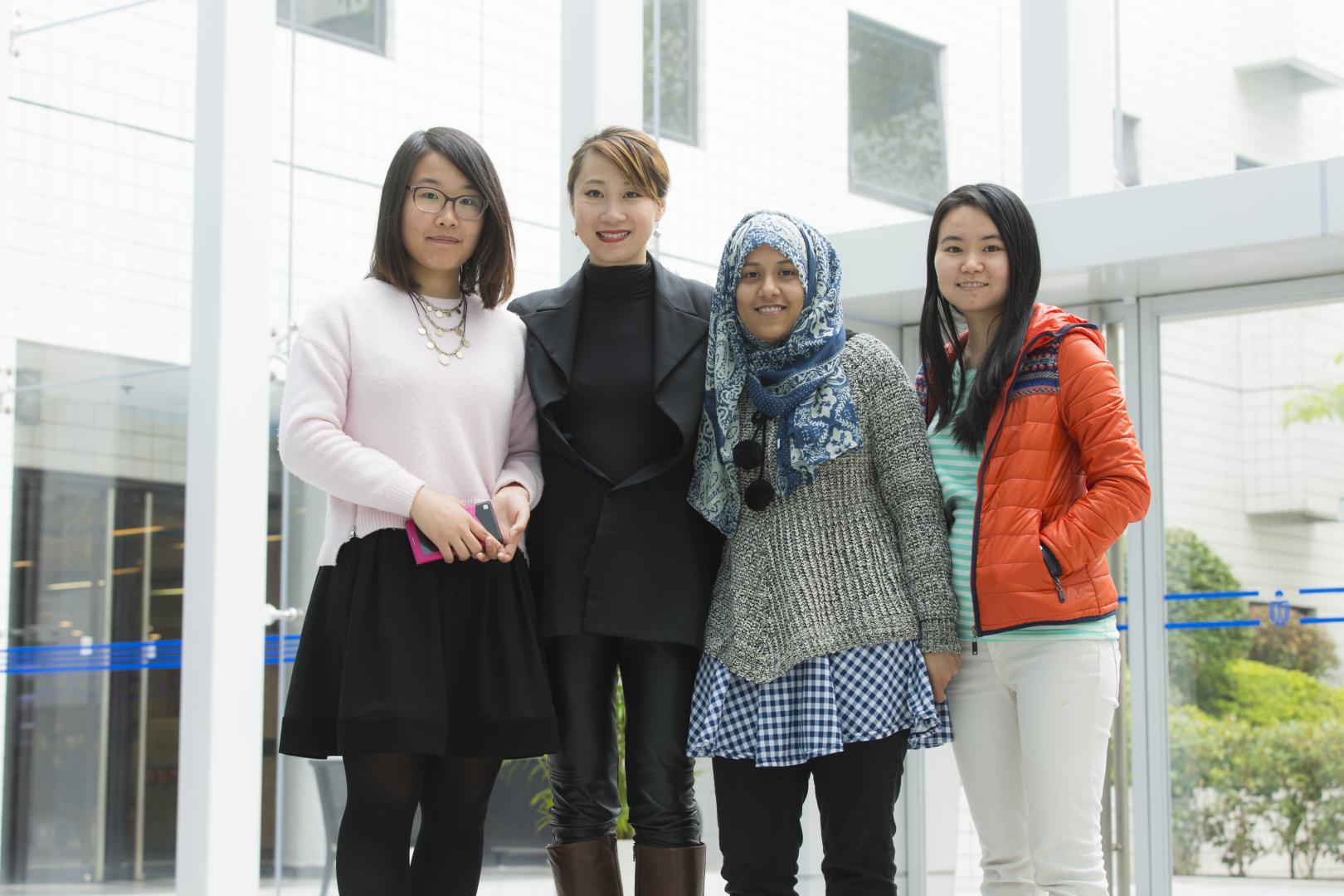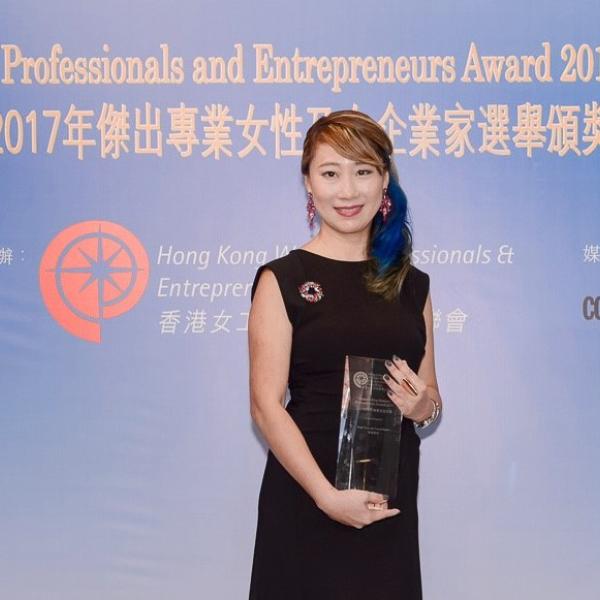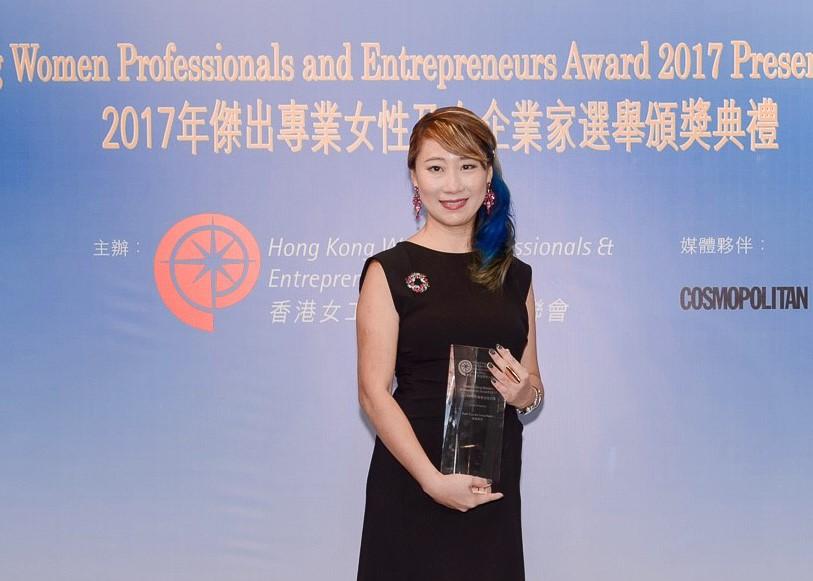The Fearless Female Engineer
An Artificial Intelligence (AI) authority, Prof. Pascale FUNG, Department of Electronic and Computer Engineering, has been blazing a trail for her female students and colleagues at HKUST for over 24 years. All of which makes this single-minded academic’s insights into female advancement every bit as inspiring as her thoughts on science and technology.
"I would prove you wrong”
Fascinated by robots and science fiction from an early age, Prof. Fung began dreaming of becoming an engineer when still in high school. While her parents were very supportive, not everyone in her family proved quite so enthusiastic.
“My uncle told my mom that although I was top of my class in many subjects, I would never beat the boys in mathematics,” recalls the professor with a smile. “Determined to prove him wrong, I never again got a B in maths.”
Prof. Fung’s secondary school career counselor was equally dismissive, trying to persuade her that engineering was too tough a field for girls, but her teacher’s negativity merely resulted in the young professor’s redoubling her resolve “to do what I wanted to do!”
With a determined spirit the young Pascale began to explore science and engineering and was lucky enough to have a friendly lab technician as her early mentor. “I went to an all-girls high school and there was no engineering club for us. This lab technician taught a few girls and me about engineering and computer programming like an after-school class. I even started an electronics club with me as its only member,” says Prof. Fung.
Now as a teacher, Prof. Fung sees her role in encouraging students to have faith in themselves. She makes sure her classes provide a gender-inclusive learning environment where every student has an equal chance to participate in class projects and research work.
“To be successful is to ignore people who told you that you could not, that is what I always tell my daughter and students. The more you want to do, the more people want to doubt you. But it’s really important to believe that you can do it. My job is to make my students believe in themselves,” says Prof. Fung in a firm voice.
Short on female role models to inspire
As a respected figure in engineering of many years standing, Prof. Fung has seen improvement in the opening up of STEM-related industries for females despite slow progress . “Given that the move toward gender equality is still in its very early stages, I do not realistically foresee any significant advances for the next five to 10 years,” she said.
Prof. Fung sees the small number of women taking on leadership positions in engineering companies as a major obstacle to progress.
“There are still so few women leaders in engineering. Until more women reach senior positions, there’ll never be enough role models to inspire the next generation of female engineers,” she argues.
As a mother herself, Prof. Fung thinks the burden of being a homemaker is somehow one of the biggest reasons why ambitious women are reluctant to take up leadership roles.
“Professional women are still the ones who take care of the family. Until men start sharing family responsibilities, there will always be a challenge for women.”
Despite the existence of conventional gender roles, the professor points out that the stereotypes could be turned into one of women’s biggest pluses in the field.
“Females in the workplace tend to be more empathetic and understanding of their colleagues than their male counterparts. This not only makes them better team players but also better suited to people-facing engineering fields, such as social robotics and education,” says Prof. Fung.
Her inner sense of empathy really came into its own when she was diagnosed with cancer in 2015. While tailoring her personal treatment regimen with her doctor, she began researching possible ways machine learning might empower the study of illnesses and diseases.
“Leveraging papers written by the scientists and doctors whose research saved my life, I viewed my treatment as a project that I hoped might one day help other sufferers all over the world.” She and her fellow researchers have since gone on to develop “Meet Nora!”, an emotionally intelligent virtual self-help agent designed to boost the wellbeing of anyone undergoing quarantine because of COVID-19.
AI – Harness it or Fear it
With potential applications for AI-enabled systems such as “Meet Nora” now growing almost exponentially, Prof. Fung remains ideally qualified to offer her perspective on the emerging technology’s many potential benefits and risks. Recently she has been named as a fellow of the Association of the Advance of Artificial Intelligence for her significant and sustained contribution to the AI field.
Prof. Fung says Bbefore she can fully immerse students in the many extraordinary possibilities that AI is opening up, the professor she does everything possible to encourage them to disregard the many falsehoods and conspiracy theories spread across social media.
“As with the various conspiracy theories surrounding COVID-19 vaccines, misinformation and rumors about new technologies such as AI are gaining traction via social media. People wildly speculate on things that don’t exist,” warns Prof. Fung. “Even some of my own family members initially believed the conspiracy theories. People opposed to vaccination are risking other people’s lives.”
Prof. Fung believes that early STEM education is the most effective way to nurture the kind of logical and critical thinking skills needed to debunk misinformation in today’s ever more technologically sophisticated world. People’s vast inadequate awareness of AI meant that researchers like herself only really began thinking about the technology’s ethical application in recent years.
“The normal 10-year lag between invention and application was expected to allow researchers to assess AI’s likely implications. However, the life cycle has been greatly shortened nowadays and there is insufficient time for regulations,” explains Prof. Fung.
As AI becomes more and more autonomous, she cautions that we must never surrender control of the technology’s production and monitoring.
Looking forward, Prof. Fung anticipates that AI’s wide deployment will pave the way for the rise of precision medicine by leveraging machine learning to identify possible cures for disease.
“As such machines will be able to examine DNA sequences and leverage their findings to tailor better treatments for cancer patients, so precision medicine is an area that really does need to be more fully explored. This will require a lot of data for learning machines to crunch.”
While facilitating such developments and applications will require a great deal of work and stringent monitoring measures, Prof. Fung is positive that AI will reshape patient care and benefit both doctors and patients but only if “we must keep humans in the loop.”
When asked to give advice to young women who might decide to follow in her research footsteps, Prof. Fung’s wisdom is both down-to-earth and empowering: “The more you tell others about what you want to accomplish in life, the more that they will try to plant doubts in your mind. To be successful, you must ignore those who tell you that you cannot and believe only that you can.”

